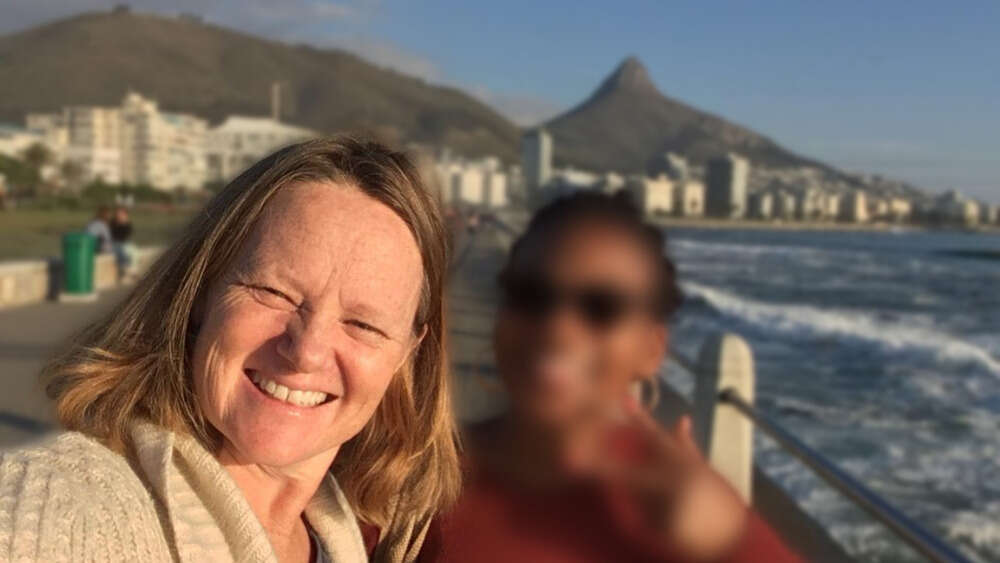Bridget is a missionary with SIM, serving in South Africa, her home country. She studied at SMBC (2010-2012) in Sydney, Australia, before returning home. She serves as a women’s worker at Holy Trinity, Gardens, Cape Town.
We jolted down the quiet road, her crouched form peering out from behind the steering wheel. “Drive it like a boss,” I yelped, at once thinking to myself, is “boss” derogatory to her? In South Africa, historically white people have been the boss or “baas”. She burst out laughing, a bit nervously.
I had been meeting with Buhle for some weeks reading through Christian author Tim Lane’s book Living Without Worry. As a struggler with anxiety myself, I was keen to read the book with someone. Buhle has suffered with anxiety for years, on and off, but a recent move in job and home, an unfinished master’s degree and an impending driving licence test were causing her undue anxiety.
In this one little family, one member had lost her livelihood and another had participated …
She had messaged me on WhatsApp earlier in the week, leaving a voice message that sounded overly anxious. Her driving instructor had left her in the lurch and her test was the following week. I calculated my options. I could choose to stick with just reading the book with her or ask my husband if I could borrow his car to take her for a drive. I recalled a time when I had randomly let a student drive my car and it had left us both in a state of nervous shock. But Buhle had been having lessons, so it would be alright.
I drove us to a quiet suburb and we began circling a small park – up one side, across, down to a stop sign, turning left and left again and back to our starting point. We must have done this six or seven times. As the route became easier, we became more relaxed. I asked her how her recent visit to the nearby province of Kwazulu Natal had gone and whether she thought that the recent unrest there had been an attempt to overthrow our government. She seemed quite determined that it was not, that people protested about service delivery and when they protested they looted.
“But it seems to have been so organised and planned,” I commented. Her lips grew thinner and she said, “My aunty’s shop was looted, she just started a small furniture shop and it is all gone. But the thing that makes me the most angry and upset is that my brother took part in the lootings.” My body reeled and at the same time warmed that she would feel comfortable enough to tell me this. Finally, I could come a little bit closer to the goings-on of things on the ground.
Generally one would think that the unrest had been a black-on-white thing or a black-on-Indian thing, but in this one little family, one member had lost her livelihood and another had participated (in the lootings in general).
As a white person living in South Africa, I so often feel far away from the struggles of many of our countrymen and women.
“What does your brother do?” I asked. He is a third-year quantity surveying student, she said. My mind turned in on itself, what drives a young man studying surveying to join in with this type of looting?
“He got a microwave,” Buhle said matter-of-factly, “but now the guy who was the ‘taxi’ for my brother and his friends [when he took part in the lootings] wants the microwave as payment for driving them. I am so angry with my brother. Does he know that if he gets caught he will have a criminal record and stands to not get a job?”
As a white person living in South Africa, I so often feel far away from the struggles of many of our countrymen and women. I found out things about Buhle on the drive that day that I had never known. Like many young black South Africans, she was the first generation to go to university. Her mother did ad hoc cleaning jobs and her father made doughnuts to sell at petrol stations. I knew she had an honours degree in biochemistry and was working in a COVID laboratory, analysing the tests, but I did not know about the struggles of her parents. Perhaps these struggles in some way contribute to making looting “alright.” But I really don’t know.
One thing is true, the gospel in our country is not penetrating deeply into people’s hearts. Statistics claim that 70 per cent of South Africans are Christian, but the problems we face in this country don’t line up with those statistics. It creates a desire and hunger in me for more people to know Christ deeply and be radically changed by him, trusting him for their needs and hurts and, in some cases, giving sacrificially back to a country that they have gained so much from.
Email This Story
Why not send this to a friend?


